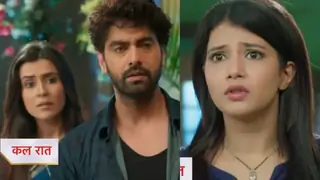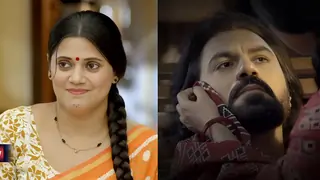This article was posted by Trishanku and I found it interesting so I thought I could copy it here.Thanks Trishanku for the article.
| Senior Member Joined: 21 August 2007 Location: India Gender: Male Posts: 476 |
30 Sep 2007, 0243 hrs IST Priyanko Sarkar on the depressing reality of reality shows. Pop culture is manufactured by SMS. Seized of this invaluable fact television has been giving it a good flogging on reality and talent shows. Last week, one of these shows threw up a new idol for the country. Never mind his name or anything else for that matter because in a few months he will be part of the wilderness populated by former champions. Winners, runners-up, finalists--everyone laments the way things turn out for them. Everyone, except for TV companies and their mobile partners who have the whole country flexing their thumbs, sending in votes, and getting to play jury and executioner. You can call it democratic or the rule of the mob(ile). When the nation's most famous vocalist Lata Mangeshkar questions the validity of these singers, you know something is wrong. "I wonder why they invite judges if their decisions are going to be overruled by a mass SMS campaign engineered by vested interests," the singer recently said in an unexpectedly strong censure. The millions of text messages are not counted before anyone, not even before the contestants in the fray. Lata Mangeshkar's comment also throws up another question: Apart from the texting throngs out there, who are the judges anyway? The inconvenient answer is commercial music directors and frustrated singers. And what are they judging? Bollywood songs, which as Lata Mangeshkar points out, can be sung by anyone who practises a recorded song long enough. To really test a singer you need to let him sing a completely new tune at his pitch, nasal overtones notwithstanding. "I've spoken to Lataji and her only concern as a senior is that real talent should come forth," says Sonu Nigam, a former judge. "But that's not going to happen until the music industry adopts a corporate culture. 'Izzat se baat karo' is constantly thrown at singers by music companies." Comparing the reality shows of today with his earlier show, Sa Re Ga Ma Pa, he adds, "My show was more serious, more sincere. Today's reality shows are well-marketed. We also need judges who know music and a non-communal audience for real talent to emerge." Despite being trumpeted as talent shows, these tamashas are more about packaging and less about the singer's pipes. "Whenever an episode is choreographed, we are told to involve the audience with lines such as 'sing with me' or 'put your hands up' in the middle of the song. Are we supposed to concentrate on our songs or the audience," asks another finalist. He rants on, "Once the finalists are chosen, the channel flashes the region from where the contestants are from in order to create vote banks. On a dry day, judges are asked to add some zing to the show, which means fight stupidly. When that too fails, judges fight over the clothes of the contestant, which have been provided by the channel itself. Is this about music or fashion?" There are other ways of creating drama. Fighting over a contestant's guru, whiplashing a singer who actually sings well, or creating love stories between the contestants. Another contestant, who did not wish to be named, said, "We knew our fate in the Gala Round even before the episode had been shot. And we heard murmurings about the channel placing bets with international bookies to decide the fate of the finalists." A recent trend on these shows is to bring in celebrity judges like Salman Khan or Kareena Kapoor, and then sing their popular songs as if they were musical legends when it is clear that they have turned up only to sell their latest movie. "Celebrity judges are not always meant to give musical comments. The important thing is the emotional connect of these judges with the singers," justifies Payaol Paul, creative head, Challenge 2007. Another common travesty occurs when judges show sympathy for a singer who has been voted out and promise to give him or her a break. That rarely happens. It's been over a year since Anu Malik promised to use N C Karunya, runner-up of last season's Indian Idol, but according to the singer, "I'm still waiting." With a touch of desperation, he adds, "Give me a chance. I can sing any type of song." Once the show the channel forgets all about the finalists despite their promise to promote them. "We had a three-month contract with the organisers even after the show is over. We could not sign anything outside nor did the channel give us any work," says another finalist. Three months is a long time to make hay in the industry when you're fresh in the public's mind. Channel heads get all philosophical: "Struggle is necessary for everyone. Our job was to provide a platform for these singers and we've done that," says Sandiip Sikcand, creative head, Sony. Source:http://timesofindia.indiatimes.com/articleshow/2415468.cms |

































